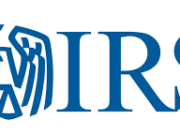The House Committee on Oversight and Government Reform held a hearing, on Wednesday, titled, “IRS Abuses: Ensuring that Targeting Never Happens Again.” The hearing covered many potentially useful proposals to prevent future political targeting by the IRS – from placing a time limit on the IRS’s review process for tax-exempt organizations to reforming civil service laws to make it easier to fire incompetent government employees. All of the panelists agreed that the ultimate goal ought to be stopping the IRS from policing political speech altogether. (You can read the full testimony of CCP President David Keating here.)
There is, after all, no logical reason that the IRS should have been capable of discriminating based on political beliefs. 501(c)(4) organizations receive no tax benefit that isn’t also given to political committees, and donations to 501(c)(4) organizations are not deductible for individual donors. The IRS has no revenue-related reason for approving these groups – the job of the IRS should be to collect revenue.
Unfortunately, Democratic Committee members at the hearing seemed more concerned with maligning the investigation into the IRS abuses than reforming the IRS itself. Many familiar excuses for IRS misbehavior were voiced, from the misleading and inaccurate claim that the IRS targeted liberal groups as well as conservative organizations to the false assertion that this targeting was the result of an influx of new applicants for tax-exempt status.
Rep. Steven Horsford (D-NV) did, however, voice an interesting argument for those who believe the investigation into the IRS is a waste. That is, it is not simply a waste of time, but a waste of money. He argued that House activities looking into IRS had, so far, cost taxpayers $18 million.
So is the investigation into the IRS scandal worth that much money?
For the sake of argument, let’s assume that the $18 million figure is accurate and that there is no compelling moral case for the investigation. From a purely utilitarian perspective, should the House investigate the IRS? As long as the investigation restores even a modicum of trust in the accountability of government officials or in the impartiality of IRS employees, the answer is a resounding Yes.
If even a small portion of Americans believe that the IRS is not playing by its own rules and has become a partisan political agency, the effects on government revenue collection could be disastrous. If compliance with income tax laws drops just 1% the government will receive $170 billion less in revenue over the next ten years or about 10,000 times the amount the House investigation has cost. Keep in mind that 74% of Americans believe that, “lawmakers should investigate the IRS ‘until someone is held accountable.’”
Put another way, if the House investigation prevents only the smallest decrease in tax compliance – about 3,000 Americans – by convincing them that the IRS will be held accountable when it violates the rights of Americans for its partisan political gain then its investigation will be a net financial benefit to the government.
It is reasonable to conclude that the House investigation is, rather than a waste of taxpayer dollars, a relatively cost effective way to save taxpayers millions while safeguarding the First Amendment rights of all American citizens.














